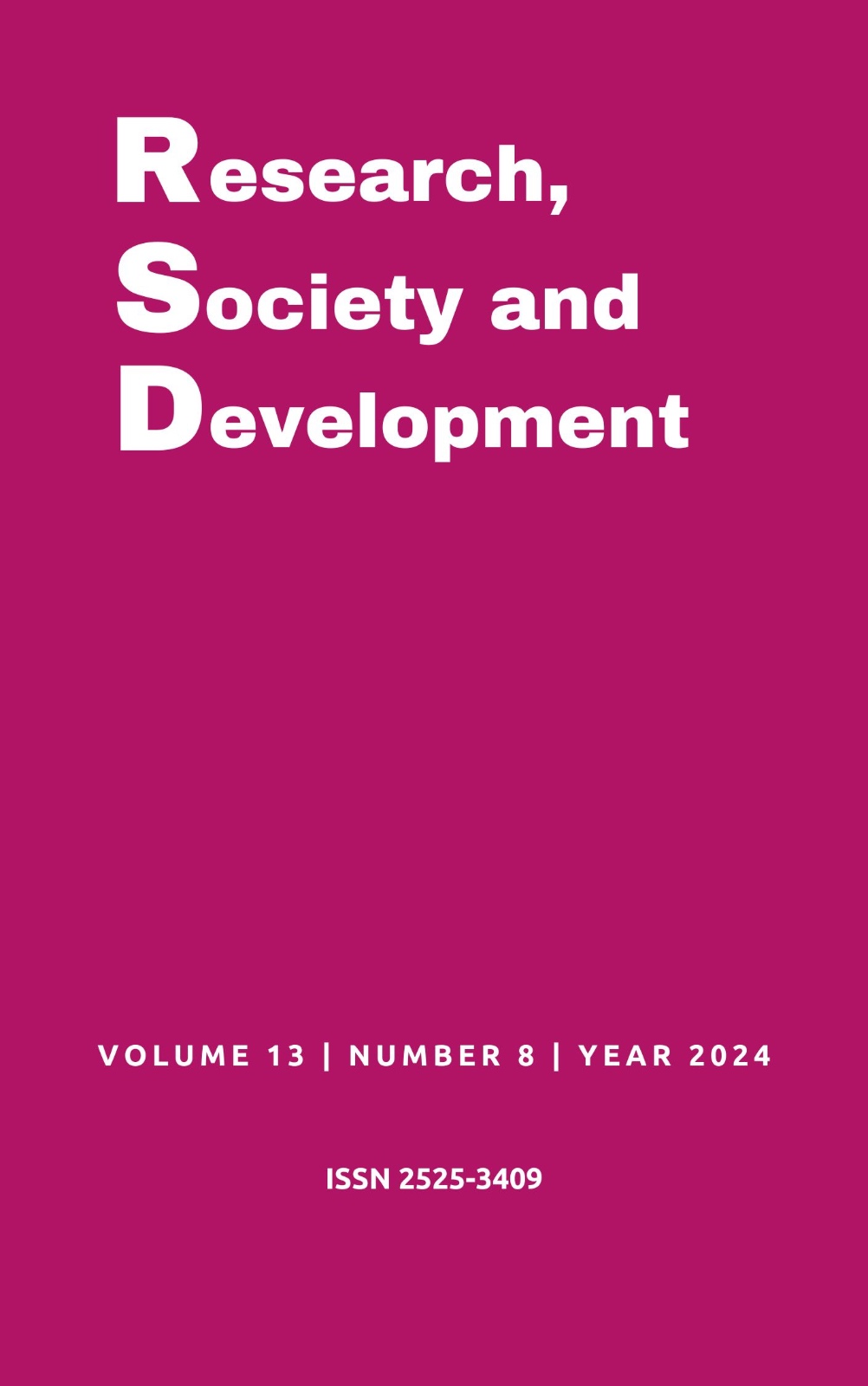Dengue cases in Brazil: Evolution of reported cases in the last 10 years
DOI:
https://doi.org/10.33448/rsd-v13i8.46640Keywords:
Prevalence, Dengue in Brazil, Control.Abstract
Objective: The present study focused on describing the occurrence of Dengue cases in Brazil in the last ten years. Methodology: Observational epidemiological study of the time series analysis type, being carried out by collecting data from the period between 2014-2023 in Brazil, about reported cases of Dengue in Brazil, using registry data from the Notifiable Diseases Information System (SINAN) within the Department of Information and IT of the Unified Health System (DATASUS), having the following variables: Year of Notification. Results and Discussion: Between the years researched, there were approximately 9,710,271 reported cases of Dengue in Brazil, with 2015 being the year with the highest occurrence with 1,709,099 (17.60%) registered individuals, followed by 2019 (1,553,504 – 15.99%), 2023 (1,508,653 – 15.53%), 2016 (1,497,865 - %15.42), 2022 (1,393,994 – 14.35%), 2020 (944,502 – 9.72 %), 2014 (591,514 – 6.09%), 2021 (531,935 – 5.47%), 2018 (269,275 – 2.77%) and 2017 (241,865 – 2.49%). Conclusion: Epidemiological surveillance is essential to detect dengue outbreaks early and implement effective control measures. Integrating climate, behavioral and public health data can improve responses to this threat. Effective public policies, associated with awareness campaigns and community mobilization, are essential to reduce the incidence of dengue. Continuous surveillance and scientific research must be priorities to mitigate the impacts of dengue and protect the health of the Brazilian population.
References
Almeida, R., et al. (2021). Regional disparities in Dengue control in Brazil: An analysis of health infrastructure and policies. Saúde em Debate.
Araújo, R. V., et al. (2020). Vector competence of Aedes aegypti and Aedes albopictus in transmitting Dengue virus in Brazil. Parasites & Vectors, 13(1), 1-10.
Carvalho, A., et al. (2020). Integrated vector management: A review of current strategies and their effectiveness. Journal of Vector Ecology.
Castro, M. C., & Kloetzel, K. (2016). Assessing the effect of Brazilian conditional cash transfer programs on the incidence of Dengue. PLoS ONE, 11(12), e0167253.
Costa, F. R., et al. (2018). Impact of environmental factors on the spatial distribution of Dengue fever in Southeast Brazil. Journal of Tropical Medicine.
Estrela, C. (2018), Metodologia científica: ciência, ensino e pesquisa. Ed. Artes Médicas. Ou Toassi, R. S. C. & Tetry, P. C. (2021). Metodologia científica aplicada a área de saúde. Ed. UFRGS.
Fares, R. C. G., et al. (2015). Epidemiological scenario of Dengue in Brazil. BioMed Research International.
Favara, M., et al. (2017). The impact of climate variables on the transmission dynamics of Dengue fever: A systematic review. Revista Brasileira de Epidemiologia.
Finderup Nielsen, K. (2024). Dengue and malaria cases set to soar in a warming world. Nature.
Marinho, R. A., et al. (2016). Risk factors for Dengue in socioeconomic and environmental contexts: A case study in Rio de Janeiro, Brazil. Public Health, 131, 18-25.
Oliveira, M., et al. (2022). COVID-19 and Dengue: An assessment of the impact of the pandemic on vector control programs in Brazil. Revista da Sociedade Brasileira de Medicina Tropical.
Organização Mundial da Saúde. (2023). Dengue fever – Sudan. Disease Outbreak News.
Pereira, J., et al. (2023). Dengue fever in Brazil: Historical trends and public health implications. Revista Brasileira de Saúde Pública.
Rodrigues, M. S., et al. (2017). Long-term effects of Dengue epidemics in Brazil: An ecological study. BMC Public Health, 17 (1), 1-8.
Salles, T. S., et al. (2018). Dengue in Brazil: Current perspectives on diagnosis and control. Journal of Clinical Virology, 98, 36-40.
Silva, A., et al. (2019). Community engagement in Dengue prevention: A cross-sectional study. Cadernos de Saúde Pública.
Teixeira, M. da C. N. C., et al. (2013). Epidemiologia e desafios no controle da dengue no Brasil. Revista de Saúde Pública, 47(3), 486-496.
Teixeira, M. G., et al. (2020). Emergence of Dengue in non-endemic areas of Brazil: What do we know? Tropical Medicine & International Health, 25(3), 355-362.
Veiga, R. V., et al. (2016). Climate and Dengue in Brazil: The influence of climatic factors on seasonal patterns of Dengue. PLOS Neglected Tropical Diseases, 10(4), e0004718.
Weaver, S. C., & Vasilakis, N. (2009). Molecular epidemiology of Dengue viruses: Past, present, and future perspectives. Advances in Virus Research, 72, 1-25.
Xavier, L. M., et al. (2017). Evaluating the effectiveness of community-based Dengue vector control programs: A systematic review. Tropical Medicine & International Health, 22(3), 353-362.
Downloads
Published
Issue
Section
License
Copyright (c) 2024 Júlia Coelho da Silva; Henrique França Silva; Vanessa Mariano Montanha Furlaneti; Michelle Milene Perdigão Moreira Cecim; Hamilton Roberto Moreira de Oliveira Carriço; Ana Cristina Paz Reis; Eliane Leite da Trindade

This work is licensed under a Creative Commons Attribution 4.0 International License.
Authors who publish with this journal agree to the following terms:
1) Authors retain copyright and grant the journal right of first publication with the work simultaneously licensed under a Creative Commons Attribution License that allows others to share the work with an acknowledgement of the work's authorship and initial publication in this journal.
2) Authors are able to enter into separate, additional contractual arrangements for the non-exclusive distribution of the journal's published version of the work (e.g., post it to an institutional repository or publish it in a book), with an acknowledgement of its initial publication in this journal.
3) Authors are permitted and encouraged to post their work online (e.g., in institutional repositories or on their website) prior to and during the submission process, as it can lead to productive exchanges, as well as earlier and greater citation of published work.


